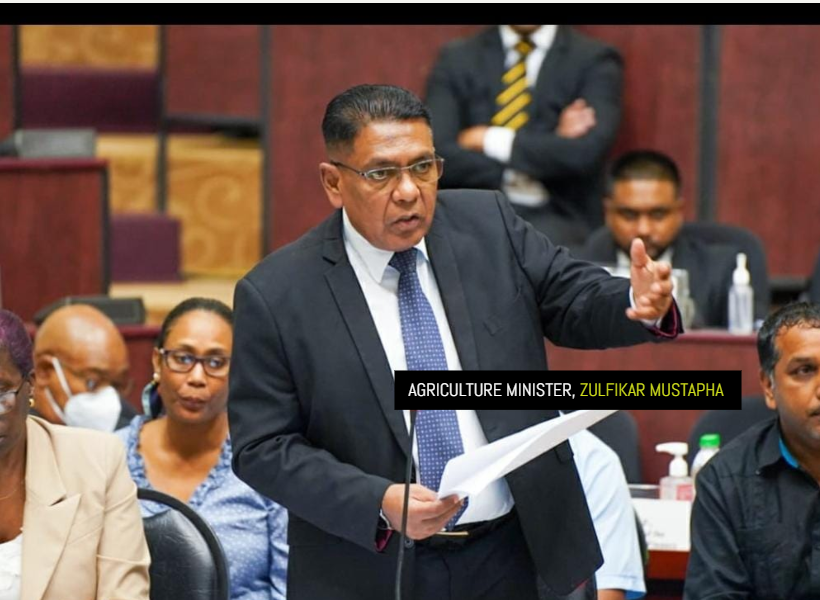Around 1,100 workers have been re-enlisted by the People’s Progressive Party Civic (PPP/C) to bolster operations at the Rose Hall estate, poised to recommence activities by the close of this September.
Minister of Agriculture, Zulfikar Mustapaha, delivered this announcement during today’s session of the National Assembly held at the Arthur Chung Conference Centre. The Minister was at the time taking the opportunity to criticize the previous Granger-led coalition government for the closure of the estate, which he said had left over a thousand workers unemployed. In its move to revamp the estate, the Minister shared that these re-hired individuals will play a pivotal role in revitalizing sugar production at the estate.
Mustapha was at the time advocating for $1.5 billion in supplementary funding, earmarked to enliven the rehabilitation of 1,572 hectares of temporarily abandoned lands across Albion, Blairmont, Rose Hall, and Uitvlugt estates.
The Minister noted that thus far, the government has held discussions with nearly 1,100 workers who were previously employed at the eastate. He also announced that the re-cultivation of over 4,000 hectares of cane on the estate is high on the government’s agenda and is projecting an impressive yield of 56,000 tons of sugar for the upcoming year.
When the National Budget of 2023 was being debated in the National Assembly, an allocation of $1.195 billion was sought to facilitate the estate’s reopening. This allocation was earmarked to cover modern equipment procurement and the refurbishment of existing machinery. Reflecting the government’s steadfast commitment to sectoral growth, the Ministry of Agriculture secured a substantial $33.2 billion budget, representing the largest allocation for the ministry in its pursuit of agricultural development.
During today’s session, Mustapha also underscored the government’s unwavering commitment to revitalize the Guyana Sugar Corporation (GUYSUCO), acknowledging its pivotal role as a cornerstone institution in Guyana. He also emphasised the importance of driving the non-oil sector.
The $1.5 billion in supplemntary funding as since been greenlighted.











